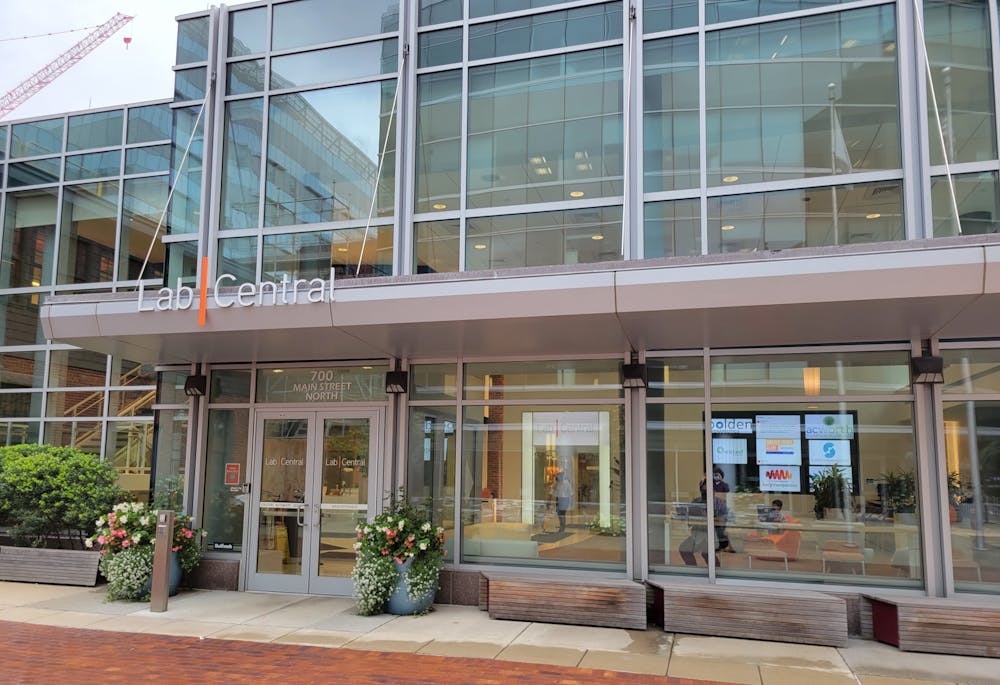Bolden Therapeutics is a biotechnology company that develops therapeutics to promote the birth of new neurons in the adult brain for potential treatment of neurological diseases such as Alzheimer’s disease. The company arose from a collaboration between the Fallon Lab and the Webb Lab and works to “translate exciting research that has come out of these labs into therapeutics that can have an impact on patients,” Johnny Page ’18 MD ’25, co-founder and CEO of Bolden, said.
The Webb lab studies the decline of neurogenesis — the process by which neural stem cells in the brain create new neurons that contribute to normal brain function and memory — during aging and neurodegeneration, said Ashley E. Webb, assistant professor of molecular biology, cell biology and biochemistry and Scientific Advisory Board member of Bolden.
During aging and in disease, “neural stem cells are driven into a deeper state of quiescence, a state where they don’t want to divide due to the hostile environment that they’re residing in,” Page added. Different cell signaling pathways contribute to this process.
“Several years ago, our lab discovered a novel signaling pathway by which cells communicate — the Musk-BMP pathway. We recognized that we had found a way that this pathway could be modulated,” or regulated, said Justin Fallon, professor of neuroscience and professor of psychiatry and human behavior and Scientific Advisory Board chair of Bolden.
After hearing Webb present her research at a retreat for graduate students and scientists, Fallon “realized that we each had part of the solution to a problem.” He and Webb talked over lunch about combining their research efforts to test Musk-BMP’s role in neurogenesis during aging.
Their joint research started with “a small grant from the Office of the Vice President here at Brown — the Seed (Award) — which allowed us to do the experiments that showed that this Musk-BMP pathway was important in neurogenesis,” Fallon said.
These results were promising, showing that the Musk-BMP pathway is “essentially a switch to modulate the quiescence” of neural stem cells, Page said. To further address whether the pathway could potentially be manipulated through drugs to treat neurodegenerative diseases, Fallon, Webb and Page — who previously worked as an undergraduate in Fallon’s lab, co-founded Bolden Therapeutics.
Bolden’s research goal is to bring neural stem cells “out of quiescence to make them divide again and to contribute to the formation of new brain cells … to improve cognitive function and outcome” in patients with central nervous system diseases like Alzheimer’s, Page said. In order to do this, they are “developing a specific pharmacological agent to target neurogenesis in the brain,” Webb added.
The company is funded publicly with grants from the National Institutes of Health, philanthropically with grants from foundations and privately by private investors.
“Our goal for the next 12 months is to validate the effectiveness of our candidate drugs in mouse models of neurological disease,” Fallon said. They are aiming to move from mouse models to human clinical trials within two years, he added. This is an ambitious but not unrealistic goal, as the particular modality of the therapeutic they are developing — antisense oligonucleotides — are developed very quickly, according to Fallon.
Historically, the majority of research behind drug development was conducted by pharmaceutical companies themselves. But now there are “very few pharma companies or even biotech companies that do their own basic research,” Fallon said.
Bolden is part of a new wave of research companies that grew off of university-based research. “The new targets and the new therapeutics will arise largely in academic labs as university and non-profit-generated ideas are now becoming the norm,” he added.
Students at Brown have access to an “amazing opportunity … to really be actively engaged in the early critical stages of therapeutic development,” Fallon said.
“With Brown’s excellent resources and growing support for this kind of work, I would really encourage (students) to talk with their advisors” if they have a research topic they would like to further explore, Page said. “If you have an idea, be vocal about it, because I think a lot of professors … are excited about the opportunity (for) their research (to) have a broader impact,” he added.





